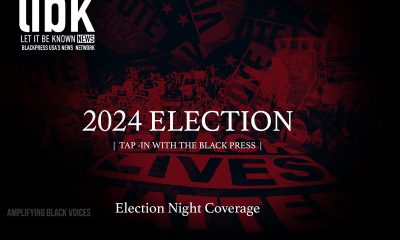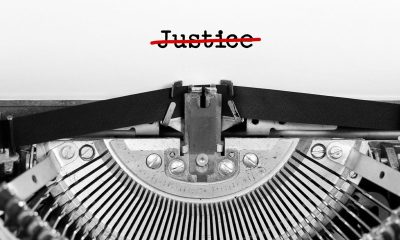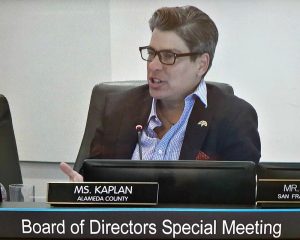#NNPA BlackPress
Black Borrowers May Be Biggest Beneficiaries of Biden Student Loan Forgiveness
When the Biden Administration announced its latest initiative to reduce the nation’s unsustainable trillion-dollar student debt, both borrowers and advocates rejoiced. In the coming weeks an estimated 804,000 student loan borrowers will together receive $39 billion in federal loan debt cancellations. These unprecedented debt cancellations are available due to systemic corrections that will now ensure […]
The post Black Borrowers May Be Biggest Beneficiaries of Biden Student Loan Forgiveness first appeared on BlackPressUSA.


When the Biden Administration announced its latest initiative to reduce the nation’s unsustainable trillion-dollar student debt, both borrowers and advocates rejoiced. In the coming weeks an estimated 804,000 student loan borrowers will together receive $39 billion in federal loan debt cancellations.
These unprecedented debt cancellations are available due to systemic corrections that will now ensure all borrowers receive full credit for qualifying payments under the Department’s Income Driven Repayment (IDR) plans.
More importantly, these developments signal one of the very few times that Black student loan borrowers stand to become the initiative’s biggest beneficiaries. Recent data analyses underscore the extra student debt borne by Black America.
To paraphrase President Biden’s reaction to national health being passed when he served as President Barack Obama’s Vice President, ‘This is a big deal.’
According to the Education Data Initiative:
- Black college graduates owe an average of $52,000 in student loan debt;
- Over half of these borrowers say their net worth is less than their student debt;
- Black student loan borrowers are the most likely to struggle financially to make a $250 monthly payment; and
- Four years after graduation, Black loan borrowers owe an average of 188 percent more on their debt than whites.
Further, as of June 1, 2021 – long before this new initiative, only 157 borrowers received forgiveness from the Education Department, despite the fact that thousands more were also eligible, according to the federal Government Accountability Office (GOA). This office also found that about half of more than $1 trillion in outstanding federal student Direct Loans are being paid by borrowers using IDR plans.
Now, federal loan borrowers who have reached the equivalent of either 20 or 25 years of qualifying months will benefit. Additionally, loan payments made prior to a loan consolidation will also be counted toward forgiveness.
“My Administration has worked hard to secure the largest increases to Pell Grants in a decade, fixed broken loan programs such as Public Service Loan Forgiveness and created a new income-driven repayment plan that will cut undergraduate loan payments in half and bring monthly payments to zero for low-income borrowers,” said President Joe Biden on announcing the action.
“By fixing past administrative failures, we are ensuring everyone gets the forgiveness they deserve, just as we have done for public servants, students who were cheated by their colleges, and borrowers with permanent disabilities, including veterans,” added Secretary of Education Miguel Cardona.
Borrowers receiving notifications in the coming days include those with Direct Loans or Federal Family Education Loans held by the Department (including Parent PLUS loans of either type) who have reached the necessary forgiveness threshold as a result of receiving credit toward IDR forgiveness for any of the following periods:
- Any month in which a borrower was in a repayment status, regardless of whether payments were partial or late, the type of loan, or the repayment plan;
- Any period in which a borrower spent 12 or more consecutive months in forbearance;
- Any month in forbearance for borrowers who spent 36 or more cumulative months in forbearance;
- Any month spent in deferment (except for in-school deferment) prior to 2013; and
- Any month spent in economic hardship or military deferments on or after January 1, 2013.
Discharges will begin 30 days after emails are sent. Then, borrowers will receive a second notice – from their loan servicer – after their debt is discharged. Those receiving forgiveness will have repayment on their loans paused until their discharge is processed, while those who opt out of the discharge will return to repayment once payments resume.
The Center for Responsible Lending (CRL) applauded the Administration for forgiving hundreds of thousands of loans through the improved income-driven repayment program. It commended the action as a critical step but highlighted the need for more work to be done.
“We look forward to working with the Administration to develop additional programs and regulations that will make the repayment of federal student loan debt fairer and more affordable,” said Jaylon Herbin, director of federal campaigns at CRL. “Hard-working Americans pay for a broken student loan system that was supposed to be designed for them. Instead, banking and education industry lobbyists turned it into a cash cow for themselves, skyrocketing tuition costs and telling low-and-middle income families not to worry, ‘the debt will pay for itself.’ More than two decades later, these borrowers were still paying their loans.”
“Working people with student loan debt have been made collateral damage by a dysfunctional student loan system,” said Persis Yu, Deputy Executive Director and Managing Counsel with the Student Borrower Protection Center.
Tom Shapiro, a Brandeis University professor and author of several reports examining the nation’s nagging racial wealth gap, offered in earlier research a succinct summary of Black America’s financial disparities.
“As somebody who has looked at racial wealth inequality for a long time, I didn’t have to think long and hard about why that would be the case,” Shapiro says. “African American and Latinx student borrowers finish higher education at a lower rate and come out with higher debt. So, they pay more for college and get less out of it.”
Charlene Crowell is a senior fellow with the Center for Responsible Lending. She can be reached at Charlene.crowell@responsiblelending.org.
The post Black Borrowers May Be Biggest Beneficiaries of Biden Student Loan Forgiveness appeared first on Forward Times.
The post Black Borrowers May Be Biggest Beneficiaries of Biden Student Loan Forgiveness first appeared on BlackPressUSA.
#NNPA BlackPress
OP-ED: The Illusion of Allyship. White Women, Your Yard Signs Mean Nothing to Me
NNPA NEWSWIRE – “The blue bracelets are something White women are wearing so others can see that they didn’t vote for Trump,” says Liberal Lisa from Oklahoma on X. Chile, bye. These bracelets are hollow symbols, empty gestures that mean nothing to me. An accessory to claim distance from Trump’s legacy is superficial comfort, while the choice to not stand with us in the voting booth is far more profound.

Political yard signs can symbolize intentions and allegiance. But this year, they’ve also symbolized betrayal. During this general election, Black women were led to believe that more White women would stand with us. Exit polls, however, told a different story. Despite overwhelming displays of support, more White women still chose to vote for the convicted felon, reality TV star, and rapist. White women answered the call but left us hanging at the polls.
A Familiar Disappointment
I live in DeKalb County, Georgia, and the abundance of Harris-Walz yard signs could’ve fooled me. But I’ve seen this before, back when Stacey Abrams ran for governor. White women showed up, put up signs, attended rallies, knocked on doors, and phone-banked. Yet, when it came time to vote, they let us down—not once but twice. I’ve been here for over 15 years, and if there’s one thing I know, it’s that political signs are symbols without weight.
In every election, I’ve talked with White women. Most aren’t the primary earners in their families and vote along party lines, aligning with the preferences of their fathers and husbands. These conversations reveal a reluctance to break from tradition, even when their votes affect women and certainly when their votes impact the lives of people who look like me.
The Illusion of Solidarity—Symbols Are Not Enough
On social media, I’m seeing White women posting pictures of blue bracelets to “prove” they didn’t vote for Trump. “The blue bracelets are something White women are wearing so others can see that they didn’t vote for Trump,” says Liberal Lisa from Oklahoma on X. Chile, bye. These bracelets are hollow symbols, empty gestures that mean nothing to me. An accessory to claim distance from Trump’s legacy is superficial comfort, while the choice to not stand with us in the voting booth is far more profound.
I’ve seen Black Lives Matter signs and black squares posted on Instagram to “prove” support for Black people, but we now know that was a lie, too. Will those same people who claimed Black lives mattered now take down their Harris-Walz signs and show their true selves?
Navigating these truths is a daily struggle for me—professionally and socially. White women often misuse their privilege, supporting us only when it’s convenient. Seeing overqualified Black women sabotaged or abandoned by White women at critical moments is a constant emotional challenge. It’s exhausting to live with this reality, especially when solidarity seems like something they pick up and discard at will.
One clever campaign ad from Harris-Walz that spoke directly to White women. “Your Vote, Your Choice” emphasized that their vote was private—independent of their household situation. Another was from Olivia Howell Dreizen, the “Vote Without Fear” campaign, which empowered women to consider the greater impact of their choices. But it seems many still couldn’t choose the roadmap to freedom—even when it was handed to them.
A Call for Action Beyond Words
White women, I want to believe you care, but actions speak louder than yard signs, bracelets, or Instagram posts. Show up in our communities, advocate in your workplaces, and stand up to dismantle the structures that uphold white supremacy. Only through real action will we know where you stand.
If you choose not to act, we see you—and we know exactly where you stand. Good luck these next four years.
Disclaimer: The views and opinions expressed in this article do not necessarily reflect the official policy or position of BlackPressUSA.com or the National Newspaper Publishers Association.
#NNPA BlackPress
Supernova Parenting Conference Empowers Over 100 Parents with Resources for Neurodivergence and Mental Health
The inaugural Supernova Parenting Conference was co-hosted by Natasha Nelson, known as Supernova Momma, and Yolanda Walker, founder of Parenting Decolonized. It brought together over 100 parents, caregivers, and educators dedicated to fostering understanding and support for neurodivergent children and mental health challenges. The conference provided invaluable resources, expert insights, and a collaborative space for […]

The inaugural Supernova Parenting Conference was co-hosted by Natasha Nelson, known as Supernova Momma, and Yolanda Walker, founder of Parenting Decolonized. It brought together over 100 parents, caregivers, and educators dedicated to fostering understanding and support for neurodivergent children and mental health challenges. The conference provided invaluable resources, expert insights, and a collaborative space for connection, marking a significant step toward creating a more inclusive parenting community.
The event featured a variety of workshops, panel discussions, and keynote speeches from leading experts in neurodiversity and mental health. Attendees left with practical tools and strategies to enhance their parenting journeys, emphasizing the importance of understanding and supporting the unique needs of neurodivergent children.
“While the conference was a tremendous success, we believe that our work doesn’t end here,” said Natasha Nelson. “It’s crucial to continue providing ongoing support and resources for parents as they navigate this important journey. We want to ensure families can access the tools they need long after the conference.”
To extend the momentum generated at the conference, Natasha and Yolanda are excited to announce the launch of the Supernova Parenting Community. This membership-based initiative aims to offer a safe and supportive environment for parents and caregivers to continue their growth as conscious parents.
Membership is available for as little as $5 a month via Patreon, making it accessible for all families seeking support.
“We know that parenting can be a challenging journey, especially when navigating neurodivergence and mental health issues,” Yolanda Walker added. “Our goal is to build a community where parents feel seen, heard, and supported. We hope you’ll join us in this vital work.”
For more information about the Supernova Parenting Community and to sign up for membership, please visit supernovaparenting.org
#NNPA BlackPress
Election Night on The Yard at Howard University
Election Night on The Yard at Howard University
-

 Alameda County3 weeks ago
Alameda County3 weeks agoAlameda County District Attorney Pamela Price Announces $7.5 Million Settlement Agreement with Walmart
-

 Activism2 weeks ago
Activism2 weeks ago‘Jim Crow Was and Remains Real in Alameda County (and) It Is What We Are Challenging and Trying to Fix Every Day,’ Says D.A. Pamela Price
-
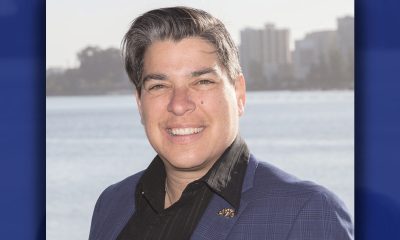
 Activism4 weeks ago
Activism4 weeks agoOP-ED: Hydrogen’s Promise a Path to Cleaner Air and Jobs for Oakland
-

 Bay Area3 weeks ago
Bay Area3 weeks agoIn the City Attorney Race, Ryan Richardson Is Better for Oakland
-

 Activism2 weeks ago
Activism2 weeks agoOakland Post: Week of October 30 – November 5, 2024
-

 Business4 weeks ago
Business4 weeks agoHarris Promises 1 Million Forgivable Loans for Black Businesses
-

 Business4 weeks ago
Business4 weeks agoStudy Confirms California’s $20/Hour Fast Food Wage Raises Pay Without Job Losses
-
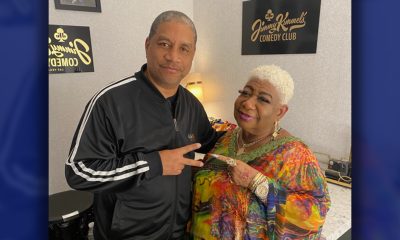
 Community4 weeks ago
Community4 weeks agoTerry T. Backs Oakland Comedy Residency by Oakland’s Luenell at Jimmy Kimmel’s Comedy Club in Las Vegas







